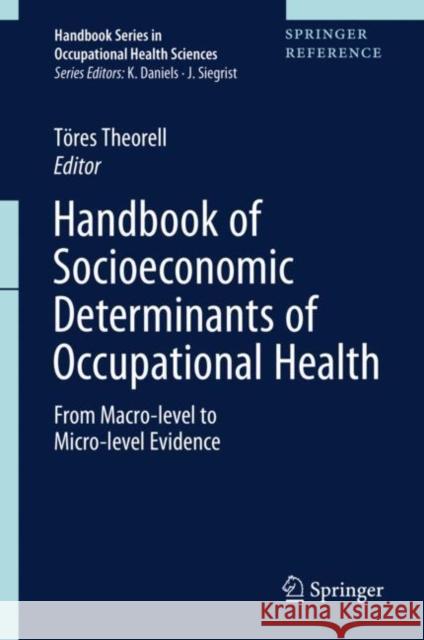Handbook of Socioeconomic Determinants of Occupational Health: From Macro-Level to Micro-Level Evidence » książka
topmenu
Handbook of Socioeconomic Determinants of Occupational Health: From Macro-Level to Micro-Level Evidence
ISBN-13: 9783030314378 / Angielski / Twarda / 2020 / 704 str.
Handbook of Socioeconomic Determinants of Occupational Health: From Macro-Level to Micro-Level Evidence
ISBN-13: 9783030314378 / Angielski / Twarda / 2020 / 704 str.
cena 1533,32
(netto: 1460,30 VAT: 5%)
Najniższa cena z 30 dni: 1079,53
(netto: 1460,30 VAT: 5%)
Najniższa cena z 30 dni: 1079,53
Termin realizacji zamówienia:
ok. 16-18 dni roboczych.
ok. 16-18 dni roboczych.
Darmowa dostawa!
Kategorie:
Kategorie BISAC:
Wydawca:
Springer
Seria wydawnicza:
Język:
Angielski
ISBN-13:
9783030314378
Rok wydania:
2020
Wydanie:
2020
Numer serii:
000920438
Ilość stron:
704
Waga:
1.53 kg
Wymiary:
23.62 x 19.56 x 3.81
Oprawa:
Twarda
Wolumenów:
01











